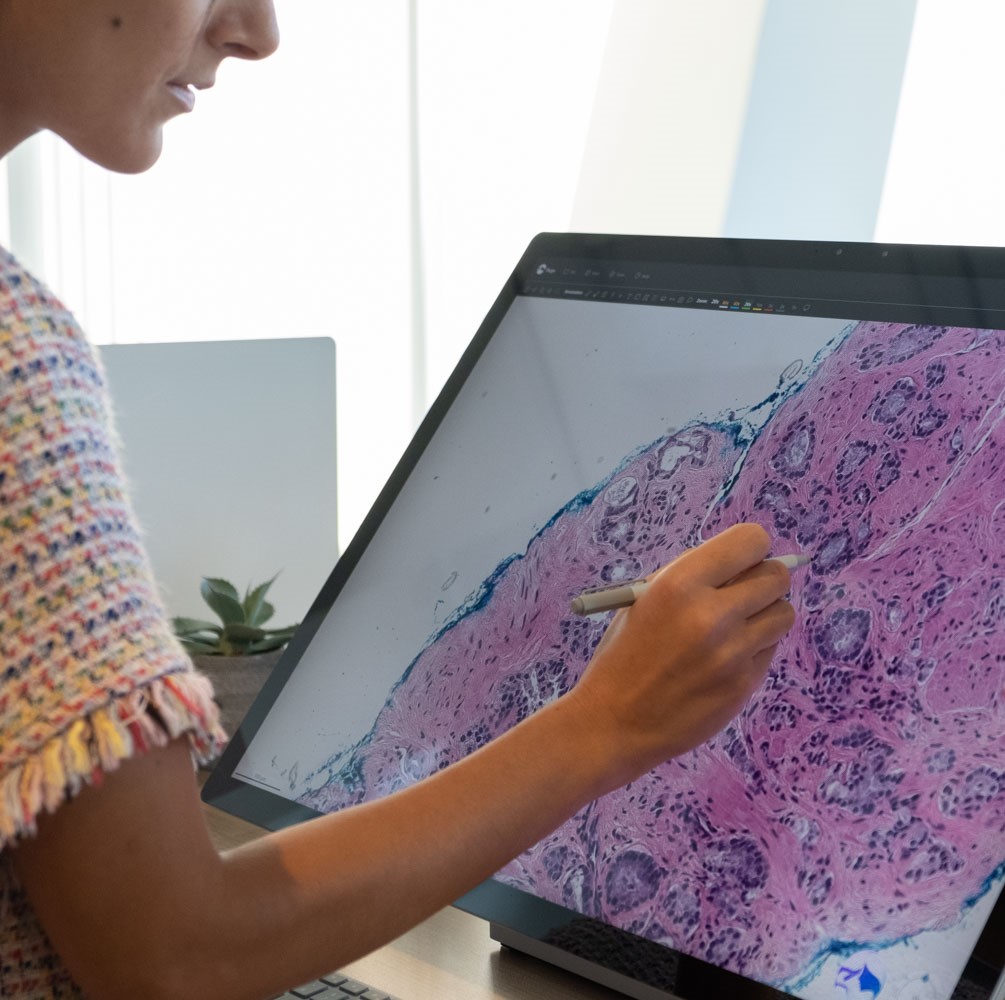A prostate cancer detection software system to help pathologists quickly identify suspicious areas of tissue, developed by the digital diagnostic company Paige, will be investigated in a multicentre clinical study led by the University of Oxford as part of a successful NHSX Artificial Intelligence Health and Care Award application.

Paige Prostate automatically detects and highlights areas of suspicious tissue, allowing the pathologist to quickly identify if cancer is present in the patient biopsy.
The software also measures and grades the severity of tumours it detects, which assists the pathologist in accurately and efficiently diagnosing cancer and influencing important treatment decisions in patients with prostate cancer.
This award means that Oxford University and its NHS partners Oxford University Hospitals (OUH) NHS Foundation Trust, North Bristol NHS Trust and University Hospitals Coventry and Warwickshire, will use Paige Prostate prospectively in a real-world cancer laboratory setting, taking the technology one step closer to widespread use in the NHS to benefit patients.
Oxford University was one of five lead organisations to receive Phase 4 funding, which was announced by the Health and Social Care Secretary Matt Hancock on 16 June 2021. The AI Award is a significant government initiative making £140 million available over four years to accelerate the testing and evaluation of artificial intelligence technologies which meet the aims set out in the NHS Long Term Plan.
Professor Clare Verrill from Oxford University’s Nuffield Department of Surgical Sciences and Oxford University Hospitals NHS Foundation Trust is a leading pathologist and Principal Investigator on the study.
She said: “I see this both as a natural evolution and key transformational point for histopathology. With this award we can advance the adoption of powerful technology to help pathologists by demonstrating the system-wide potential of using AI-based diagnostic systems in routine reporting.”
This is a histopathologist-led study and builds on investments made in digital pathology technology and infrastructure as part of the PathLAKE Centre of Excellence for digital pathology and artificial intelligence. Professor Verrill’s experimental pathology work is supported by the NIHR Oxford Biomedical Research Centre.
Co-investigator Dr Margaret Horton, Business Lead for Europe at Paige, added: “The NHSx programme provides the ideal catalyst for the system-wide adoption of artificial intelligence-based technologies such as Paige Prostate to improve efficiency, accuracy and patient and staff experiences. The pathologists and principal investigators in this study are global leaders in the implementation of digital pathology and utilising innovation to advance diagnostic service delivery.”
Dr Leo Grady, Chief Executive Officer of Paige, commented: “Computational pathology for diagnostics has clear potential to increase diagnostic accuracy and more efficiently utilise scarce diagnostic resources in the NHS and in other health systems around the world. The next clear step to bring this to routine practice is pathologist-led implementation in every day practice to demonstrate and measure benefits to patients, laboratories and the NHS. This exciting work with Oxford University and their NHS partners is a tremendous achievement and Paige is very proud to be working with them in transforming the important work that pathologists do.”
The AI Award is one of the programmes that make up the NHS AI Lab, led by NHSX and delivered in partnership with the Accelerated Access Collaborative (AAC) and National Institute for Health Research (NIHR).